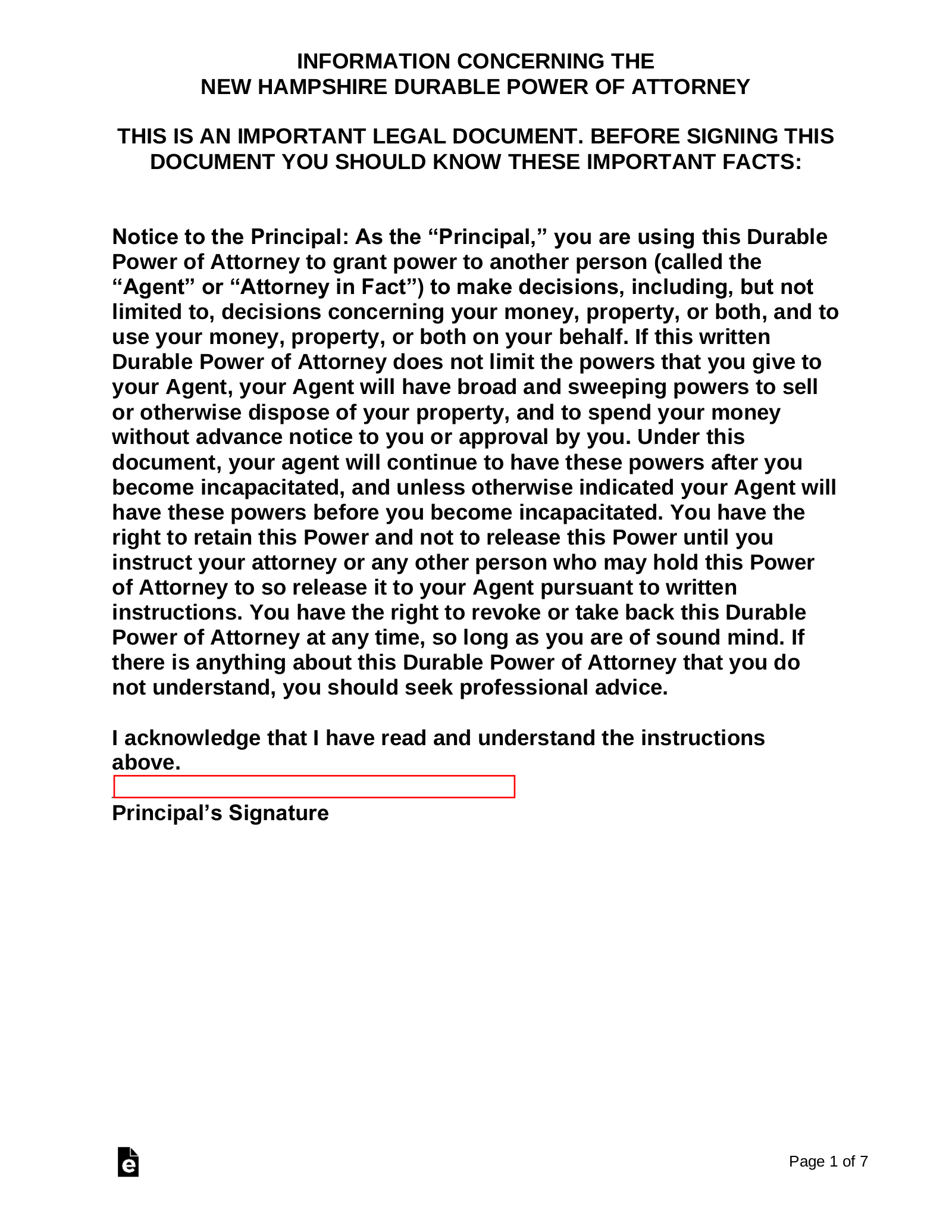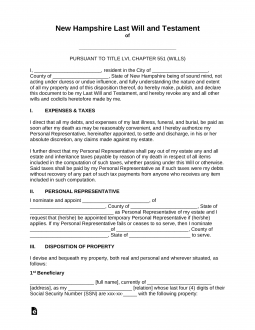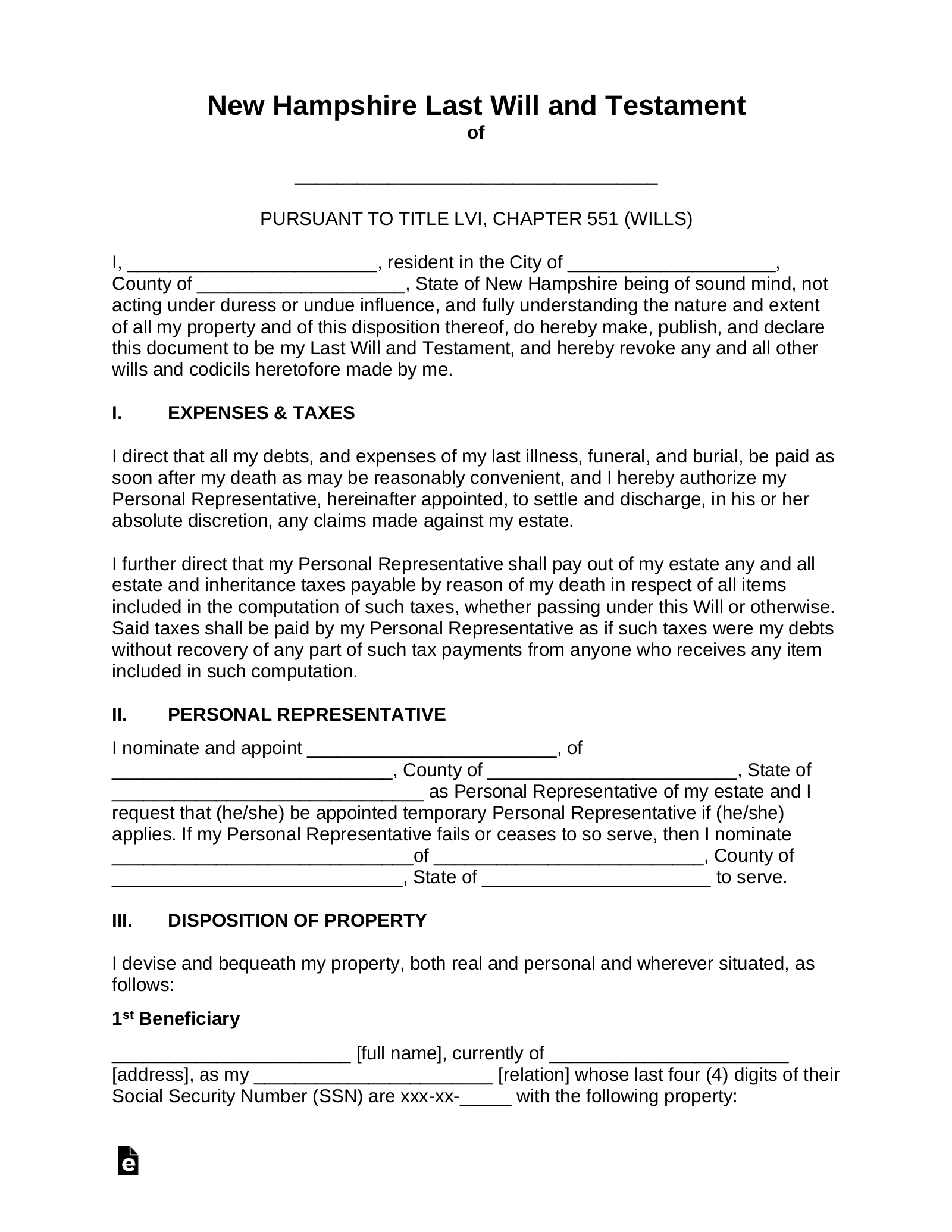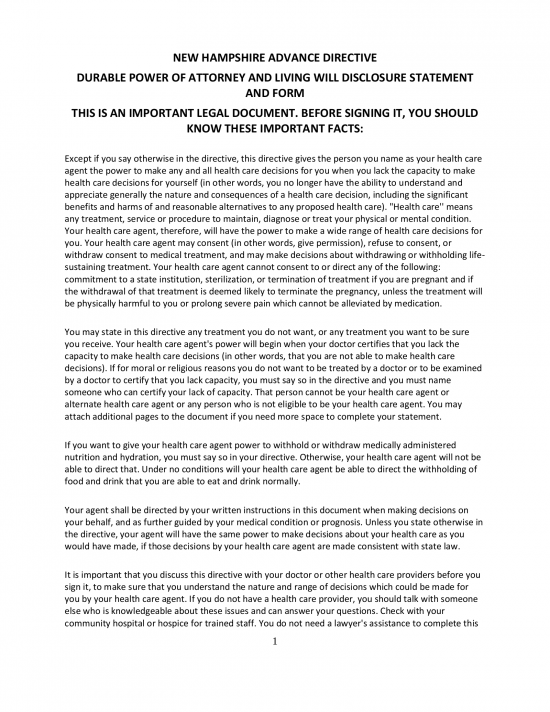Updated November 14, 2023
A New Hampshire last will and testament is a legal document in which an individual (“testator”) outlines how they wish to have their estate distributed upon their death. Using a will, a testator can bequeath real and personal property, fiduciary assets, cash-on-hand, life insurance policies, and any other portion of their estate to their designated beneficiaries.
Signing Requirements
Must be signed by the testator and two or more witnesses.[1]
State Definition
“Will” includes a codicil and must be in writing.[2]
Related Forms
Download: PDF
 Durable (Financial) Power of Attorney
Durable (Financial) Power of Attorney
Download: PDF, MS Word, OpenDocument



